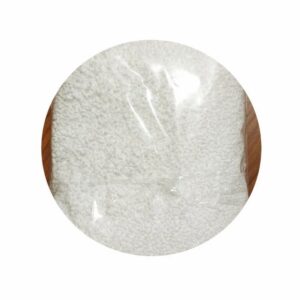Ethylene Propylene Copolymer 132 Product Description
Ethylene Propylene Copolymer (EPC) 132 is a versatile thermoplastic elastomer that combines the properties of rubber with the processing advantages of thermoplastics. This copolymer is synthesized through the polymerization of ethylene and propylene monomers, resulting in a material that exhibits excellent flexibility, resilience, and durability. EPC 132 is characterized by its low-temperature performance, making it suitable for applications in various industries, including automotive, construction, and consumer goods.
The unique structure of EPC 132 allows it to maintain its mechanical properties over a wide temperature range, providing excellent impact resistance and tensile strength. Additionally, it is resistant to UV radiation, ozone, and various chemicals, making it an ideal choice for outdoor applications. The copolymer can be easily processed using standard thermoplastic processing techniques, such as injection molding, extrusion, and blow molding, which enhances its usability in manufacturing.
Uses of Ethylene Propylene Copolymer 132
- Automotive Industry: Used in seals, gaskets, and hoses due to its excellent weather resistance and flexibility.
- Construction: Employed in roofing membranes and sealants for its durability and resistance to environmental factors.
- Consumer Goods: Utilized in the production of flexible tubing, toys, and various molded products.
- Electrical Applications: Serves as insulation material due to its excellent dielectric properties.
- Adhesives and Sealants: Acts as a modifier to improve the performance of adhesives and sealants.
Technical Data Details
| Property | Value |
|---|---|
| Appearance | Translucent to opaque |
| Density | 0.85 – 0.90 g/cm³ |
| Hardness (Shore A) | 60 – 80 |
| Tensile Strength | 10 – 20 MPa |
| Elongation at Break | 300 – 600% |
| Service Temperature Range | -50°C to 100°C |
| Thermal Conductivity | Low |
| Chemical Resistance | Excellent |
| UV Resistance | Good |
| Processing Methods | Injection molding, extrusion, blow molding |
Key Features
- Flexibility: Maintains flexibility even at low temperatures.
- Durability: High resistance to wear and tear, making it suitable for long-lasting applications.
- Chemical Resistance: Resistant to a wide range of chemicals, enhancing its applicability in various environments.
- Ease of Processing: Can be easily molded and shaped using standard thermoplastic techniques.
Conclusion
Ethylene Propylene Copolymer 132 is a highly adaptable material that meets the demands of various industries. Its combination of flexibility, durability, and resistance to environmental factors makes it an ideal choice for a wide range of applications. Whether in automotive components, construction materials, or consumer products, EPC 132 continues to be a reliable solution for manufacturers seeking high-performance materials.

